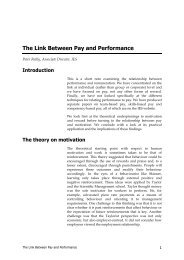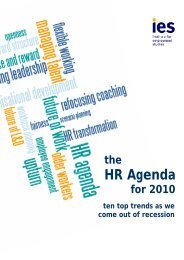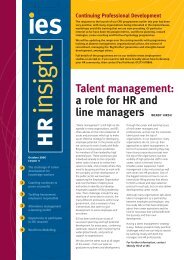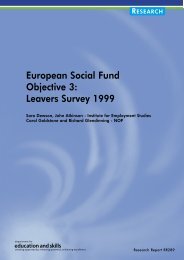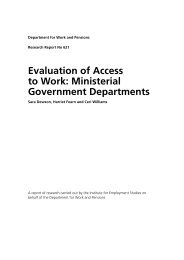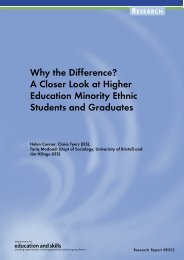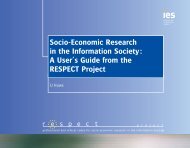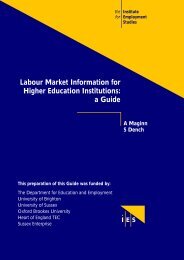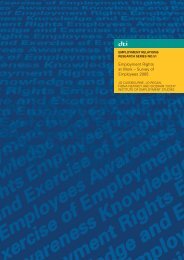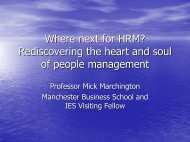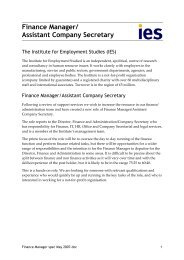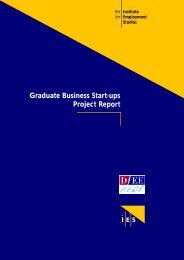Post-16 Transitions: a Longitudinal Study of Young People with ...
Post-16 Transitions: a Longitudinal Study of Young People with ...
Post-16 Transitions: a Longitudinal Study of Young People with ...
Create successful ePaper yourself
Turn your PDF publications into a flip-book with our unique Google optimized e-Paper software.
little progress, or were floundering in the relatively unsupported<br />
environment in which they now found themselves.<br />
7.3 Chapter summary<br />
• Just over half <strong>of</strong> all young people have achieved new<br />
qualifications, or have worked towards new certification<br />
since Year 11.<br />
• <strong>Young</strong> people <strong>with</strong>out statements and those from<br />
mainstream schools were more likely to have gained new<br />
qualifications.<br />
• Formal qualifications, such as GCSEs and GNVQs were<br />
more likely to have been achieved by people <strong>with</strong>out<br />
statements and those from mainstream schools than those<br />
<strong>with</strong> statements or those who had been to a special school.<br />
These young people were more likely to have achieved<br />
less formal, ‘other ‘ qualifications and certificates.<br />
• Most young people report several s<strong>of</strong>t outcomes since Year<br />
11 , including feeling more independent, having more<br />
friends, and having a clearer idea <strong>of</strong> what they want to do<br />
in the future.<br />
• Most parents believe that education had given the young<br />
person greater confidence and taught them subjects that<br />
were work-relevant.<br />
118<br />
<strong>Post</strong>-<strong>16</strong> <strong>Transitions</strong> <strong>of</strong> <strong>Young</strong> <strong>People</strong> <strong>with</strong> SEN: Wave 2



